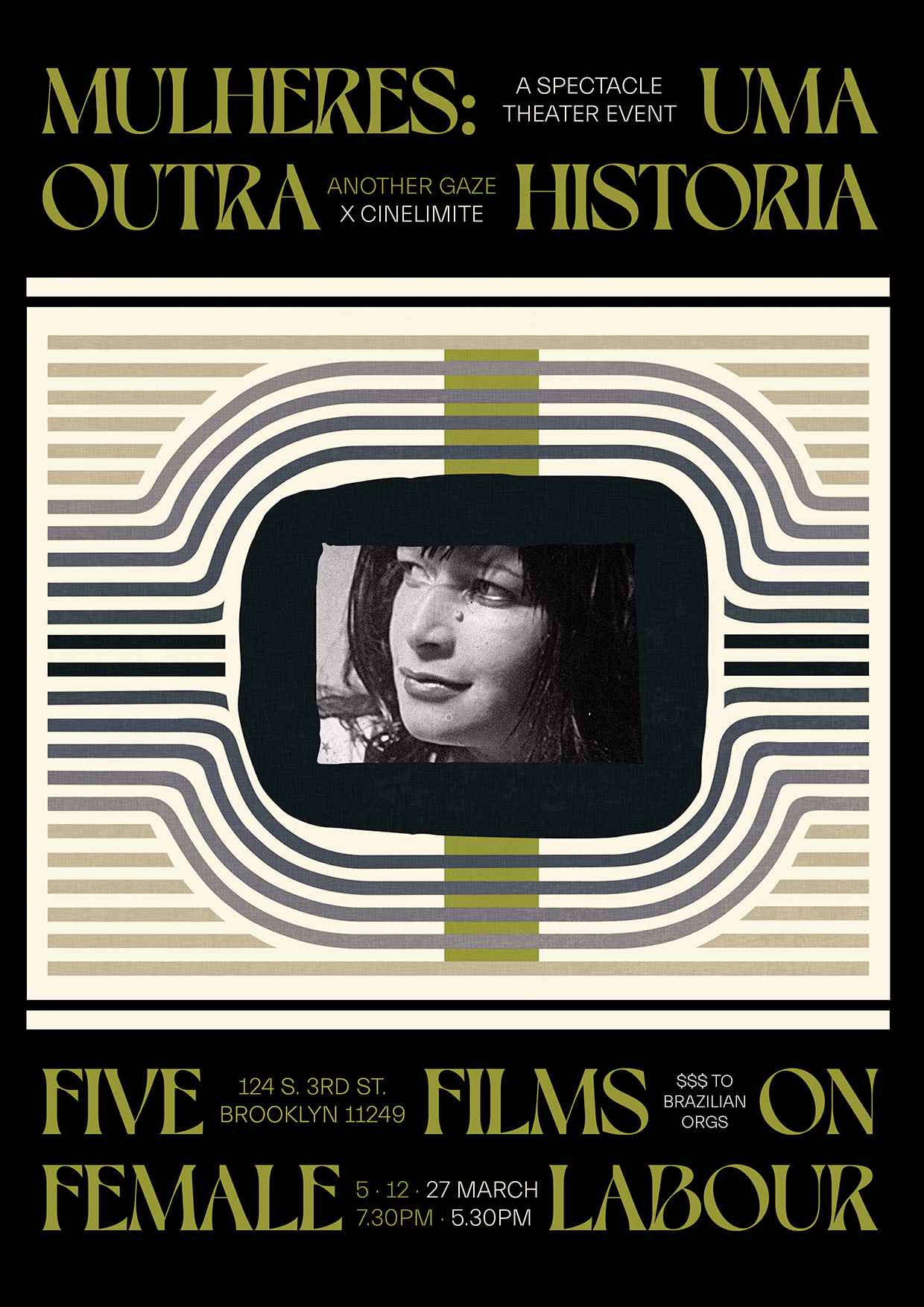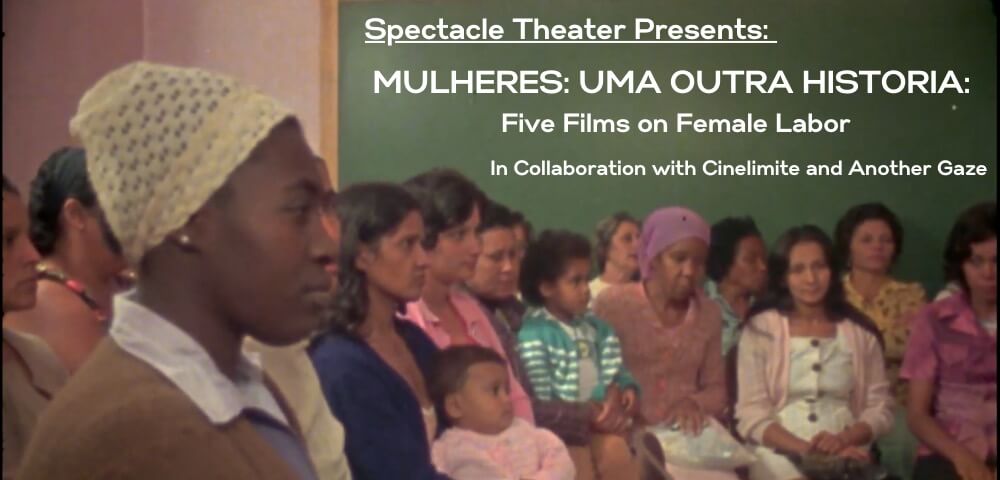MULHERES: UMA OUTRA HISTORIA: Five Films on Female Labor highlights the essential contributions of women filmmakers to the documentary form in Brazil. These short-form feminist works, originally presented on television, in feminist film clubs, and at international film festivals address key labour challenges from the brothels of São Paulo’s Boca do Lixo to the economic revolution of the women of Santa Cruz do Capibaribe in Pernambuco.
In collaboration with Another Gaze and Cinelimite

SATURDAY, MARCH 5 – 7:30PM
SATURDAY, MARCH 12 – 7:30PM
SUNDAY, MARCH 27 – 5PM
Creche-Lar
dir. Maria Luiza d’Aboim, 1978
Brazil. 8min.
In Brazilian Portuguese with English Subtitles
During the seventies, filmmaker Maria Luiza d’Aboim was part of the Center for Brazilian Women (CMB), a feminist organization that advocated for elevating women’s positions in society. The lack of day care centers, and the urgent need to create conditions that would give mothers help in caring for their children, were recurring points of discussion. Creche-Lar (‘Home-Daycare’), D’Aboim’s first film, arises from this search for answers and documents an experimental community daycare project in Vila Kennedy, Rio de Janeiro, which employed resident mothers from the local community.
Trabalhadoras Metalúrgica
dir. Olga Futemma and Renato Tapajós, 1978
Brazil. 17min
In Brazilian Portuguese with English Subtitles
In the late seventies, a group of Brazilian documentary filmmakers traveled to São Paulo’s ABC Region in order to record a wave of worker strikes taking place in response to the increasingly powerful and abusive automotive industry. Olga Futemma and Renato Tapajós’ Trabalhadoras Metalúrgicas is a key title among films produced during this historical event, documenting striking women metallurgical workers. By doing so, Futemma and Tapajós reveal the harsh working conditions these workers were forced to operate in, intercut with scenes filmed during the first Congress of Metallurgical Women of São Bernardo and Diadema in 1978.
Mulheres da Boca
dir. Inês Castilho and Cida Aidar, 1982
Brazil. 22min
In Brazilian Portuguese with English Subtitles
Filmmakers Cida Aidar and Inês Castilho met as part of the feminist collective that edited the newspaper Nós Mulheres (We Women) between 1976 and 1979. They came together in 1981 to make Mulheres da Boca, a film about the Boca do Lixo region of São Paulo, famous for its porntheaters and brothels. Mulheres da Boca captures the daily life of prostitutes, revealing the corruption and abuse that exists around them.
Sulanca
dir. Katia Mesel, 1986
Brazil. 14min
In Brazilian Portuguese with English Subtitles
The Feira da Sulanca still exists as a famous market in Brazil’s Northeastern city of Pernambuco that sells and exports items for the national clothing industry. While markets like these were once an unfriendly place for women to make a living, Katia Mesel’s Sulanca documents the economic revolution of the Women of Santa Cruz do Capibaribe who, through sewing, collaboration and willpower, managed to make livings for themselves and change the socioeconomic panorama of Brazil’s entire Northeastern region.
Mulheres: uma outra história
dir. Eunice Gutman, 1988
Brazil. 35min
In Brazilian Portuguese with English Subtitles
Mulheres: uma outra história focuses on aspects of women’s participation in the Brazilian political scene, featuring interviews with women in the Constituent Assembly and leaders of the rising women’s rights political movement. Suffragist Carmen Portilho appears in the film to remind viewers about the long history of struggle for women to earn the right to vote in the country.

